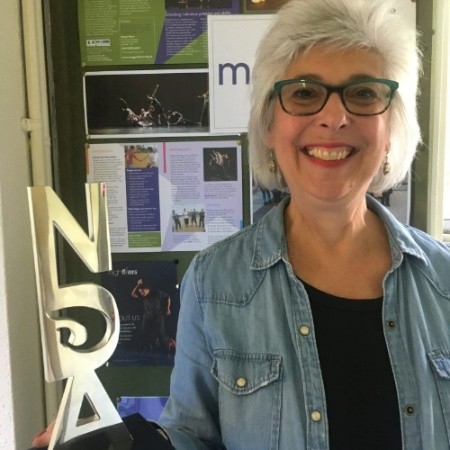Throughout my life I would often experience what I would describe as huge peaks, whereby my masking was so good I could function perfectly, achieve great things, live day to day without any problems and be extremely effective and productive in my work. These would then be followed by huge lows, where I would feel physically and mentally drained and exhausted. I would struggle to get up sometimes (although having a dog that needs to be walked every morning ensures I get up every day no matter what, unless I am unwell for any reason which is rare). I would lack the motivation to get anything done so I would always do the bare minimum at work just to get by, and some days I would have to give in and have a sleep in the afternoons. Such was the extent of the exhaustion I experienced and how low I felt.
Over the years I attended my GP about this whenever it happened, thinking I was depressed for some reason. Time after time my GP offered me anti-depressants and/or medication to help with my anxiety, but something inside me told me that this was not a route I should go down if I could help it. I have never taken an anti-depressant in my life, despite my GP trying to palm me off with them as the answer to all my problems. This is despite all the trauma and loss I’ve been through, including the loss of my son Frankie to stillbirth, and I don’t intend to start now.
Instead of taking anti-depressants I have learnt to “manage” the peaks and the lows. To the outside world I suspect it looks like I might be bipolar in some way. I know for sure that I’m not suffering from bipolar as I do not engage in any reckless behaviour during my peaks and I don’t have boundless energy – I still go to bed at my usual time and sleep well. The lows are not so low that I feel depressed to the point of wanting to commit suicide, something I know that many people who suffer from bipolar feel.
An example of when I experienced a low after a peak period of several weeks was back in early 2012. My ex-husband had left me citing he “no longer loved me as a wife” and then not long after our divorce was finalised he married my best friend from school (I have my own thoughts about that, but I will keep them to myself). At the same time, I was asked to deliver a prestigious arts event in The Hive in Worcester, which was our new library that was being built at the time and was opened Her Majesty The Queen.
The event was called “The Worcestershire Literary Festival: Literally in A Day”. As I was the Founder and Director of the Worcestershire Literary Festival which I started, I was asked to deliver a programme of book signings, spoken word and poetry readings in a day in The Hive to showcase it as a leading arts venue ready for when it opened.
I delivered the event in early April 2012 and the very next day after the event took place I “crashed”. I was so exhausted I could hardly move. I felt low, drained of energy and I was not motivated to do anything at all. I barely functioned for at least a fortnight or so, I didn’t go out and I didn’t get any work done or achieve anything. I slept during the day every day, yet I still felt exhausted. I didn’t have any self-care skills during these lows – I ate very little, I didn’t exercise, and I didn’t look after myself as I should have done. I visited my GP at the time who again tried to palm me off with anti-depressants. I said no.
Fast forward to now, and in the light of my diagnosis of autism I can see so clearly that what I was suffering was autistic burnout from constantly “masking” my condition, trying to fit in and trying to be “normal”. I can also see so clearly all the times in my life where I had suffered from autistic burnout, and why it was put down to depression by my GP.
It was extremely hard work trying to be something I wasn’t. Trying to fit in, trying to be what society wanted me to be and trying to be liked by everyone took a huge toll on me and it is no wonder I had these peaks and lows throughout my life. Masking my neurodiversity eventually became second nature to me and taking the mask off once and for all has been extremely liberating.
There are things I am doing now that I would never have dreamt of doing before. For example, I would never admit to having such an interest in all things to do with nuclear war. I kept my morbid fascination with films such as “Threads”, “The War Game”, “When the Wind Blows” and “The Day After” to myself, and I definitely would never admit that I spend hours watching nuclear war related programmes on YouTube such as “QED: A Guide to Armageddon”. Now however I am proud to showcase this interest, and I tweet about it on my Twitter account all the time:
And do you know what? I have engaged in some brilliant conversations with others on the subject, I have not been trolled or ridiculed for my interest and it feels amazing! In addition, I have stated on my Twitter account that I am neurodiverse:
I have not had ONE negative comment from this. Taking off the mask has been one of the best things I have ever done.
I can’t say that I will never have autistic burnout again, as there are still a few situations in my life where I still get anxious and masking creeps in to counteract that anxiety. In time, I’m sure I will learn to manage them and be me – authentically me.
If you are interested in contributing to Me.Decoded, please get in touch.


